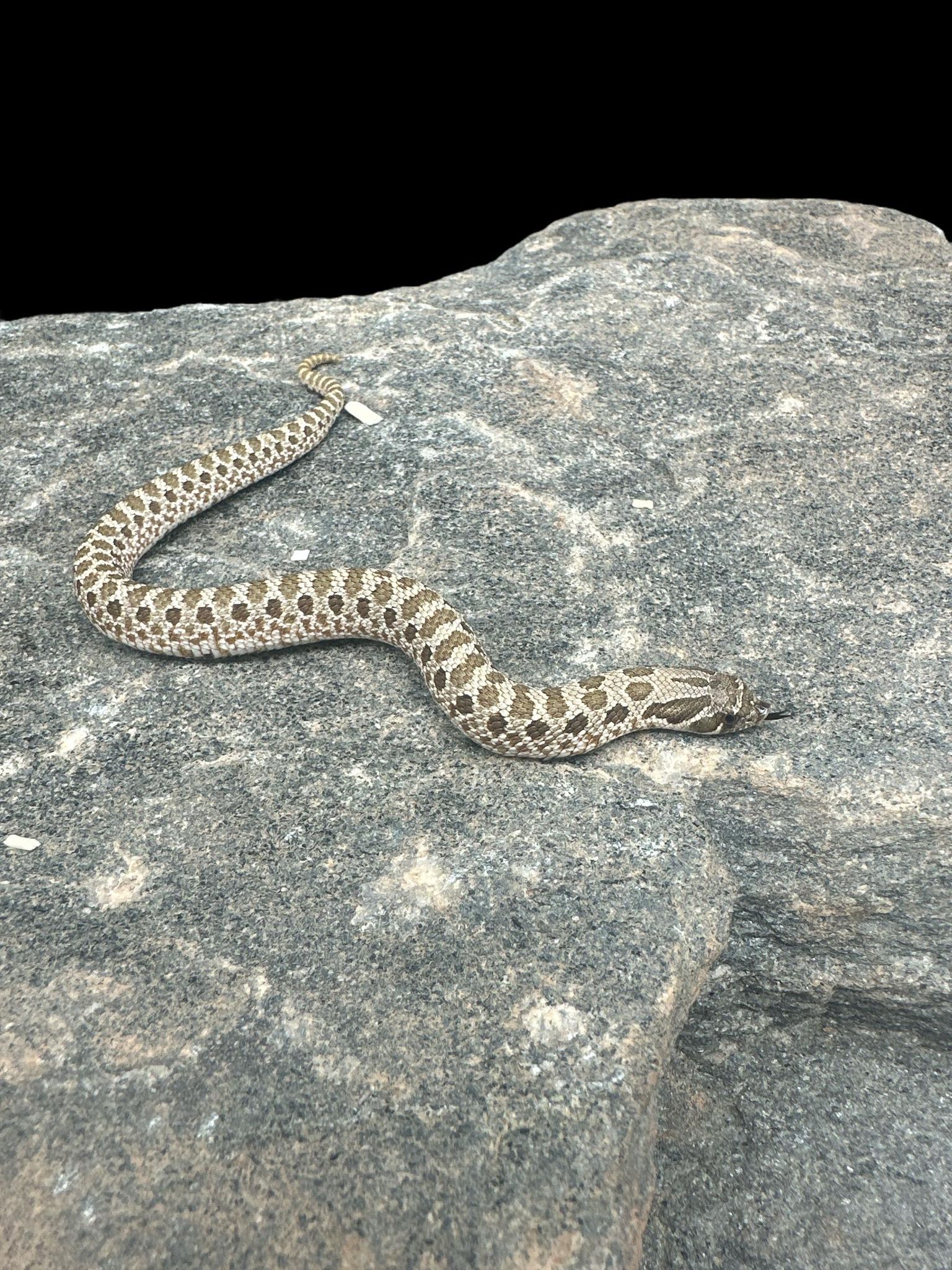Photo Disclaimer
Description
Western Hognose (Normal)
Scientific Name: Heterodon nasicus
Common Name: Western Hognose Snake
Species Overview
Size: Adult females typically reach 2–3 feet (0.6–0.9 m) in length, while males average 1.5–2 feet (0.45–0.6 m). Both sexes feature the species’ characteristic upturned snout, adapted for digging and burrowing in loose soils.
Appearance: The Normal Western Hognose displays the classic look of the species, featuring sandy brown to tan base colouring with dark blotches running along the back and sides. These markings vary in size and shape, often edged in black for strong definition. The belly is typically checkered with black and white, while the upturned snout gives the species its iconic profile. This natural appearance blends perfectly with prairie and grassland environments, showcasing the beauty of the species in its wild form.
Distribution: Native to central North America, from southern Canada through the Great Plains and into northern Mexico.
Habitat: Western Hognose Snakes inhabit open prairies, grasslands, and semi-arid regions with sandy or loose soil ideal for burrowing. In captivity, this species thrives in terrestrial terrariums with soft substrate, climbing décor, and secure hiding areas.
Behaviour: Western Hognoses are diurnal, curious, and alert snakes known for their dramatic bluff displays, which may include hissing, neck flattening, or mock strikes. These displays are harmless, and with regular handling, they settle into confident, inquisitive animals.
Captive Care
Enclosure: Provide an enclosure at least 3 feet × 18 inches × 18 inches for adults, using deep, soft substrate such as aspen, soil, or a sand-soil blend. Include multiple hides, smooth décor, and low branches for enrichment.
Temperature & Humidity: Maintain a daytime gradient of 78–86°F (25–30°C) with a basking area near 90°F (32°C). Allow nighttime drops to 70–74°F (21–23°C). Keep humidity between 30–50%, slightly increasing during shedding.
Diet: Offer thawed rodents approximately 1.25× the width of the snake’s mid-body. Feed juveniles every 4–5 days and adults every 7–10 days. Western Hognoses are reliable feeders that adapt easily to routine schedules.
Behaviour in Captivity: Hardy, engaging, and active, Western Hognoses thrive with consistent care and stable conditions. They are often seen burrowing or exploring during daylight hours and tolerate handling well once accustomed.
Special Considerations: Western Hognoses are mildly rear-fanged, and their venom poses minimal risk to humans unless an allergic reaction occurs. Handle calmly and house them individually to avoid feeding-related aggression or stress.
Genetics Note
The Normal Western Hognose does not carry or express any known morph traits. Its natural pattern and coloration form the genetic baseline for countless selectively bred morphs seen today, including Albino, Axanthic, Toffee, and Anaconda. These natural variations provide the foundation for the species’ remarkable diversity in captivity.
Genetic Combination Summary
The Western Hognose (Normal) expresses the wild-type genetics of the species:
-
Normal (Wild-Type): Displays the natural patterning and coloration of the Western Hognose, with no morph traits expressed.
As the genetic foundation of all Western Hognose morphs, the Normal form remains essential to maintaining strong bloodlines and natural diversity in breeding programs. It also serves as a beautiful representation of the species’ wild heritage.

